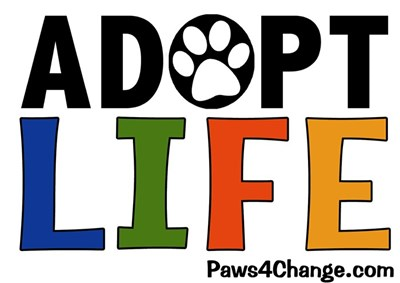|
I have heard many times over the years that if I would just _____________ (fill in the blank) my local animal shelter would be able to save more animals. I have been told to be more "nice" regarding my advocacy. I have been told that I should volunteer at my local animal shelter and it has been suggested that if I don't do that, I don't really care.
There are a lot of facets to my animal welfare advocacy. I manage multiple websites and I do volunteer work for a number of organizations, some of which are local and most of which are in other states. Most of my advocacy relates to my keyboard and my phone and I believe that I am making a difference in my own way. I do not volunteer at the animal shelter in the city where I work. I lack the time to do that and even if I had time, I just refuse to be in a building where healthy and treatable animals are still at risk. The shelter is doing much better than in years past, but savable animals still die there. I would no sooner volunteer there than I would work the line at a chicken processing plant. There is also the not-so-small issue of my history with the shelter director. She has made my life immeasurably more difficult than it otherwise should have been in the last decade due to her refusal to adopt progressive shelter programs on her own and without the necessity of advocates like me seeking change through years of boat rocking. Advocacy is hard work which is often infuriating and exhausting. And when we get right down to it, it should not have been necessary in the first place. If you ran a shelter where most of the animals died just because that was the way things had always been done and someone told you about better ways to save lives and do it quickly, wouldn't you move with a sense of urgency to do just that? Of course you would. The shelter director also thought it was a stellar idea to participate in a hate page related to me and my advocacy group on social media which led me to file a formal complaint about her conduct. We might as well be living on separate planets for all we have in common. But getting back to the "if you would just _________" argument, let's think about that. On the "you should be nicer" or the "can't we all just get along" argument, I simply disagree. As I have blogged about before, I really do not believe that the manner in which I ask a shelter to stop killing saving animals is relevant at all. I think it is sufficient to say, "please stop killing animals," "these methods will help you do that right away" and "these people can help you because they have proven experience. Please call them." When a house is on fire, no one stands outside debating how to save lives and stop the blaze in ways which won't offend anyone. The focus is on the task at hand. When people tell me that we should all just get along or that my method of communication is a bit too direct for them, I say stop putting the focus on the messenger and start focusing on the message. I am all for diplomacy and respect, keeping in mind that is a two way street. I also have no issue at all with conflict. I think I can disagree with someone on some issues and we can still find some common ground and work together toward the same destination. Moving on to the "if you would only volunteer" argument, that is also a deflection. Sure. I could volunteer at the shelter. But if just having more people to do work for the city is so important, there really are other options. Plans could easily be made to get help from our county jail by using inmate trusty labor or by having the court refer people to the shelter to fulfill community service obligations. Using inmate labor alone would be a huge help inside the shelter and there are a host of programs used across the country which have shown that this helps the inmates as much as it helps the animals. I would argue that me being in the shelter would actually be disruptive as long as savable animals are destroyed there. Unlike some volunteers who have decided that it is easier to go along to get along, I would not be silent about my beliefs. This is a moot point anyway since I refuse to be complicit in the killing and no amount of bullying will make me compromise my values. And the truth is that I do volunteer; just not at the local shelter I am criticizing. I choose to use my volunteerism for organizations which function consistent with my values and one of them is actually the animal control department of the county where I live. The key to any community becoming a no kill community is local leadership which makes saving lives an immediate priority now. Not a year from now or in 5 years but right this very minute. Once the leadership decides to stop the killing, that changes the entire landscape related to adoption, fosters, donors and potential volunteers. If you are in a community where there are advocates who are fighting for shelter reform and fighting to save the lives of animals and someone has told you that those advocates should just be nicer or should just stop talking and volunteer, take a good look at whether or not that makes any sense at all. Ask yourself what that would really accomplish. And then take a good look at why the advocacy is needed in the first place. People don't advocate for fun or because they have nothing better to do. People advocate for social change and they should not be made out to be the enemy for having the audacity to seek better for all of us. The burden of change is not mine to carry. You can stop telling me that if I would just be nicer or would just volunteer everything would change. No. Everything changes when those who are responsible for making life and death decisions regarding shelter animals choose life, take responsibility for what happens in their buildings and then invite the public they serve to be part of a new and better future.
0 Comments
If you've spent any amount of time around dogs, you have probably been bitten. As Karen Delise of the National Canine Research Council put so clearly years ago, "all dogs have teeth. All dogs bite. They bite other animals, they bite each other and they bite humans." This is Dog Bite Prevention Week. It is an annual event promoted by the American Veterinary Medical Association in concert with the US Post Office and the American Academy of Pediatrics. As we mark this week, it is worth taking a few minutes to consider the differences between actual dog attacks and dog bites, almost all of which are entirely preventable. Dog Attacks The reasons for actual dog attacks (as opposed to incidents of simple and avoidable injuries) are often complex, but the answer to preventing dog attacks is relatively simple: humane care and control of dogs is often all that is needed to prevent most dog attacks. The National Canine Research Council's investigations into dog bite-related fatalities reveals the majority of these tragic cases involved circumstances where owners failed to provide necessary care and human control of their dogs: 1) failure by dog owners to spay or neuter dogs not involved in a responsible breeding program; 2) maintaining dogs in semi-isolation on chains or in pens; 3) allowing dogs to run loose; 4) neglecting or abusing dogs; 5) maintaining dogs not as household pets, but as guard dogs, fighting dogs, intimidation dogs, breeding dogs or yard dogs; and 6) allowing children to interact with unfamiliar dogs. Dog Bites The AVMA reports that there is an estimated population of 70 million dogs living in U.S. households. Millions of people - most of them children - are bitten by dogs every year. As much as we love dogs, the reality in our society is that a lot of people don't know much about dog psychology and behavior and even those people who claim to be dog lovers engage in behavior which can lead to dog bites simply by treating dogs too much like people and not enough like the animals they are. Each year, more than 4.5 million people in the U.S. are bitten by dogs. Children are, by far, the most common victims of dogs bites and are far more likely to be severely injured. Senior citizens are the second most common dog bite victims. How do you avoid being bitten by a dog? The Humane Society of the United States provides the following tips: -be polite and respect the dog's personal space. Never approach an unfamiliar dog, especially one who's tied or confined behind a fence or in a car. Don't pet a dog-even your own-without letting him see and sniff you first. -don't disturb a dog while she's sleeping, eating, chewing on a toy or caring for puppies. Be cautious around strange dogs. Always assume that a dog who doesn't know you may see you as an intruder or a threat. -pay attention to the dog's body language. Put a safe amount of space between yourself and a dog if you see the following signals indicating that the dog is uncomfortable and might feel the need to bite: tensed body, stiff tail, pulled back head and/or ears, furrowed brow, eyes rolled so the whites are visible, yawning, flicking tongue, intense stare or backing away. Any of these signs mean the dog is trying to tell you something. For comprehensive coverage about dog body language, I encourage you to take a few minutes to read this information from Labrador Training HQ. It is incredibly detailed and can help you to be truly informed on this subject. Dogs enrich our lives in countless ways. It is well worth the effort to educate ourselves on how to prevent both attacks and bites so that we keep our families safe, avoid tragedies and keep good dogs from being destroyed in our animal shelters due to something we either did - or failed to do - which led to a dog bite. |
AuthorI am an animal welfare advocate. My goal is to help people understand some basic issues related to companion animals in America. Awareness leads to education leads to action leads to change. Archives
July 2024
Categories
All
image courtesy of Terrah Johnson
|


 RSS Feed
RSS Feed